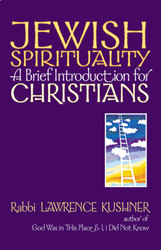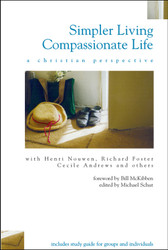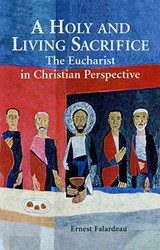2021 Catholic Media Association Award first place award in morality, ethics, christology, mariology, and redemption
What does it mean to live and build up the Kingdom of God? In this book, professor and priest Alberto de Mingo Kaminouchi introduces the contemporary reader to Christian ethics by examining the New Testament through the three key concepts of Aristotle’s ethics: happiness, virtue, and love.
In turn, the three affirmations orient this reflection through the Gospel. First, when the triune God appears on the horizon, it becomes easier to understand that existence has a purpose: namely, participating with the entire human family in this project of happiness called the Kingdom of God. Second, happiness is not something outside of us; it consists in the practice of the virtues that bring about a personal transformation. Third, the project of the Kingdom leads us to live in love with others. De Mingo Kaminouchi shows the reader a real model of this in the community we call the church, the “field hospital” for all those in need of hope. This book is accessibly written for readers not already well-versed in Christian ethics.
Product Preview
| Format: | Paperback book |
|---|---|
| Product code: | LP8809 |
| Dimensions: | 5½" x 8½" |
| Length: | 216 pages |
| Publisher: |
Liturgical Press
|
| ISBN: | 9780814688090 |
| 1-2 copies | $17.55 each |
|---|---|
| 3-9 copies | $16.75 each |
| 10-49 copies | $15.96 each |
| 50-99 copies | $15.56 each |
| 100+ copies | $14.96 each |
Praise
Athens meets Jerusalem in this splendid text that introduces students to contemporary virtue ethics. Alberto de Mingo Kaminouchi covers a great deal of ground: a survey of the history of moral theology, the Christian moral life as configuration to Christ, Aristotelian virtue ethics, and the ethics of the Beatitudes. The book is written in a lucid, engaging style that invites a response to the life of happiness it describes.
The author wisely and helpfully sets the stage for his presentation by concisely narrating the five centuries of Catholic moral theology and its renewal in the decades around the Second Vatican Council. In so doing, de Mingo Kaminouchi introduces readers to a wide range of voices in Catholic moral theology, some more familiar (Curran, Ratzinger, Fuchs, Hauerwas, Rubio, and Häring) and others less familiar, especially voices from Spain that rarely get a hearing among North American readers. The structure of the book is masterful, giving teachers and students solid foundations for an ongoing consequential discussion of Christian ethics in a world that continues to struggle to find its own grounding for conversations about value, character, and ethics. This introduction is a solid grammar of Christian ethics, and it deserves to find a home in the classrooms of North American colleges and seminaries.
Special thanks to Liturgical Press for bringing such an eloquent translation of the signature work of Alberto de Mingo Kaminouchi into the English-speaking world. De Mingo is that rare Catholic bridge builder who spans biblical theology with theological ethics and introduces us to the grammar of virtue as we learn from revelation to be configured by Christ. Rightly he unfolds for us the beatitudes at the heart of this remarkable lesson and then concludes with an introduction to the three forms of love. I cannot recall ever such a compelling and ultimately satisfying introduction to Christian ethics. Bravo!
Thoroughly rooted in Scripture and history, comprehensive but never tedious, accessible without sacrificing depth—a lucid and engaging introduction to the beauty of the Christian story and life lived in response to it.
Alberto de Mingo Kaminouchi develops in his An Introduction of Christian Ethics: A New Testament Perspective a Christocentric vision of the moral life whereby Christian ethics helps ‘transform [Christians] into the image of Christ.’ Moving beyond an emphasis on avoiding sin, he focuses on Christians moral growth, conversion, and transformation into a more Christlike people. Sustaining the change into the image of Christ requires practice, specifically the practice of virtues. Beginning with Aristotelian virtue theory as a framework for Christian ethics, he looks at the theological virtues before turning to the Beatitudes. De Mingo Kaminouchi gently moves the reader beyond seeing the Beatitudes as corporal and spiritual works of mercy to be performed for the sake of others. Instead he challenges us to see the Beatitudes as pertinent virtues for the moral life. Virtues that if cultivated help us respond to God’s call and change us over time in the image of Christ. In so doing he connects the moral life and the life of discipleship.
This is a book of spiritual reading located in authentic scholarship, for those who are seeking to live a deeper, more generous life.
A wide variety of readers, teachers and students will find this book useful not only at first reading but as a book to which they will return.
A clear, persuasive, and succinct account of Christian ethics grounded in the New Testament.
Winner of a Catholic Media Association first-place award, this book deserves every accolade it has received. Kaminouchi's book is an excellent point of entry into the study of Christian ethics, especially as he charts the course that the discipline has taken in recent years.
Author
Alberto de Mingo Kaminouchi, PhD, is a priest of the Congregation of Most Holy Redeemer and serves as professor of New Testament ethics at the Alphonsian Academy in Rome and at Saint Louis University (Madrid campus). He was born in Hiroshima, Japan, in 1964, of a Japanese mother and a Spanish father. A Redemptorist missionary, he studied theology at the Pontifical University of Salamanca. He was ordained to the priesthood in 1993. He received a license in Sacred Scripture at the Pontifical Biblical Institute in Rome and a doctorate in biblical theology at the Jesuit School of Theology at Berkeley, California. His books include 'But It Is Not So Among You': Echoes of Power in Mark 10:32-45 (Bloomsbury, 2003), Símbolos de Salvación (Sígueme, 2007), and La Biblia de principio a fin (Sígueme, 2019).








